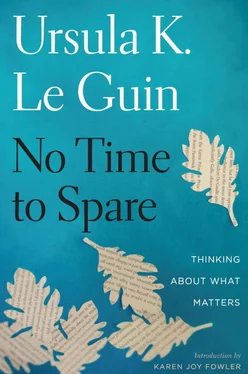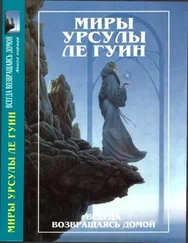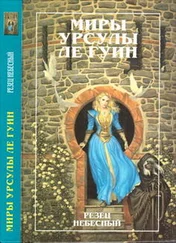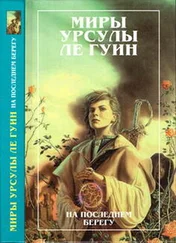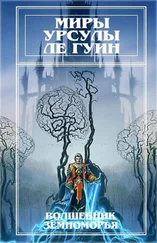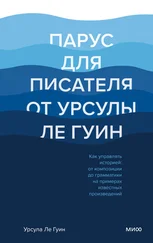But we aren’t a solitary species. Like it or not, we are the Bandar-log. We are social by nature, and thrive only in community. It is entirely unnatural for a human being to live long completely alone. So when we get sick of crowds and yearn for space and silence, we build these semi-communities, pseudo-communities, in remote places. And then, sadly, by going to them, swarming into the desert, all too often we find no true community, but only destroy the solitude we sought.
As for cats, most of their species are not social at all. The nearest thing to a cat society is probably a troop of active lionesses providing for the cubs and the indolent male. Farm cats sharing a barn work out a kind of ad hoc social order, though the males tend to be less members of it than a danger to it. Adult male lynxes are loners. They walk by themselves.
The strange fortune of my lynx brought him to live in an artificial environment, a human community utterly foreign to him. His isolation from his natural, complex wilderness habitat is grievous and unnatural. But his aloofness, his aloneness, is the truth of his own nature. He retains that nature, brings it among us unchanged. He brings us the gift of his indestructible solitude.
Notes from a Week at a Ranch in the Oregon High Desert
August 2013
THE HOUSE WHERE we stay is on a small cattle ranch, in the valley of a creek that comes energetically down off a mountain, cutting a winding oasis of willows and grass between very steep ridges topped with basalt walls like battlements—rimrock. Across the creek is the ranchhouse under a huge old weeping willow. The eastern ridge rises immediately behind it; immediately behind our house, the western ridge. Level, grassy pastures fill the narrow land between; the steep slopes are sagebrush, rabbitbrush, bare dirt, rock. Far up the long valley, most of the ranch stock are still in summer pasture. It’s very quiet around the house. The nearest town is three miles to the north. Its population this year is five.
On the First Day
Five swallows sit the near wire.
A fiercely agitated flicker lights on the other wire, then follows its own crackling cry.
Rain hangs in the overcast, heavy above the ridge.
A hen has laid an egg: outbursts of proud contentment. Two roosters crow, competing.
The peacocks make their gallant, melancholy, meowing trumpet call.
Soon the sun will break above the rimrock of the ridge, an hour after rising.
Flights of blackbirds pass in the cool, shadowed air between the eastern and the western rimrock, dozens at a flight, each flight a sound of many wings, an airy throbbing rush and thrill. The creaking whicker of wind in feather, now and then. Now and then a chirp.
In silence far above them swallows follow the hunt, the least and sweetest predators.
A contrail feathers out white over the eastern ridge.
As my eyes begin to have to look away from the slow intolerable brightening I close them and inside the lids see the long curve of the ridge dark red, the darkest red: above it a band of green, the purest green. Each time I look and close my eyes again, the band of green grows wider, burning clear, unmitigated fire of emerald. Then at its center appears a circle of pale, unearthly blue.
I open my eyes and see the source, the sun, one glance, and look down blinded, humble, to the earth, the dull black lava pavement of the path.
The warmth of the sun is on my face as soon as its light is.
After the tremendous thunderstorm of afternoon, tall shivering towers of rain that swept across the pastures, wind that writhed the great old willow like seaweed in the waves, after all that was over and the quiet dusk was filling up the air between the ridges, the horses got to frisking. The little roan and the three bays nipped and kicked, ran and reared, chest to chest; even Daryll, old paint swayback boss, got into it with the colts a bit. They teased, they galloped across the pastures, hooves drummed that wild music on the ground. They quieted down, drifting off north along the creek. Old paint’s white flank glimmered like fireflies in the willowy dark.
In the night, awake, I thought of them standing in the wet grass, among the willows, in the night.
I stood on the doorstep in the deep night. Cloud-veils crossed the blazing pavement of the firmament and passed. Above the eastern ridge a shining blur, the Pleiades.
On the Second Night
On the second night all creatures woke, and the sleepless cricket was silent suddenly. The thunder spoke from ridge to ridge, from canyon to canyon, far, then nearer. Darkness split wide open to reveal what it hides. Only for a moment can the eyes of the creatures see the world in that awful light.
On the Third Day
In the afternoon the ravens of the western ridge flew with their children across the air between the ridges, calling in their language full of r ’s. The youngest talked a lot, the elders answered briefly. Then all at once there seemed to be five ravens? six?—no: these were vultures, materializing from the sky, eleven, twelve, nine, seven… soaring, vanishing, appearing, circling, playing with heights and distances and one another in their marvelous, calm, and never broken silence.
After a while they all drifted off back south toward the mountain, quiet lords of the warm towers of the air.
Walking up the road from Diamond after dinner, we heard way off across the fields the shrill, uncanny chorus, a coyote family. A nighthawk’s twang. Metal rattled loud where a hoof touched it in the effortless leap: the doe flitted off into twilight like a rolling-falling wave. Then, from the old, tall poplars hoarding darkness, voices spoke softly with complete authority. Under cloud, the red sun shone out, sank, was gone. The owls said nothing more. The old trees released their darkess finally.
On the Morning of the Fourth Day
Sunlight fills the open valley half a mile away, but here between the rimrocked ridges I sit in windy shadow; half an hour yet to wait on the lava doorstep, while the rain from yesterday’s thundershower drips from gutterless eaves onto my head and book, for the brightness over the dark bulk of the ridge to gather and center into the sun itself.
The big black cattle munch industrious on rain-gift grass just outside the wooden fence around the house. A peacock pulls his poor, slattern tail along through molting August, pride reduced to sapphire head and rajah’s crest and the brassy, meowing, melancholy jungle cry.
The banty rooster shrills: It-is-a-clarion-call! It-is-a-clarion-call! The big rooster exerts the unjustified superiority of a deeper voice. The hens pay no attention, scattering out, scudding along like sailboats over the grass. Now they begin to chatter, to gather back to the henyard: Gretchen has come out to scatter feed.
The contrail shines where it has each morning, drifting now steadily north and east to where the sun will rise. It slowly passes, iridescent, behind the ridge that darkens as the brightness grows.
It is risen. It is risen in beauty.
The reliable miracle, a couple of minutes later and a little farther south each day.
The lesser miracle, the brief transubstantiation of black lava into glimmering red-violet and blue-green light in my observing and delighted eyes, has occurred, is over. The rough black rock keeps its secret.
The daily hummingbird assaults existence with improbability. He is drawn to my orange tea mug.
The big black heavy cattle munch and breathe and gaze, each with its following of small black birds. All living things work hard to make their living.
Читать дальше
